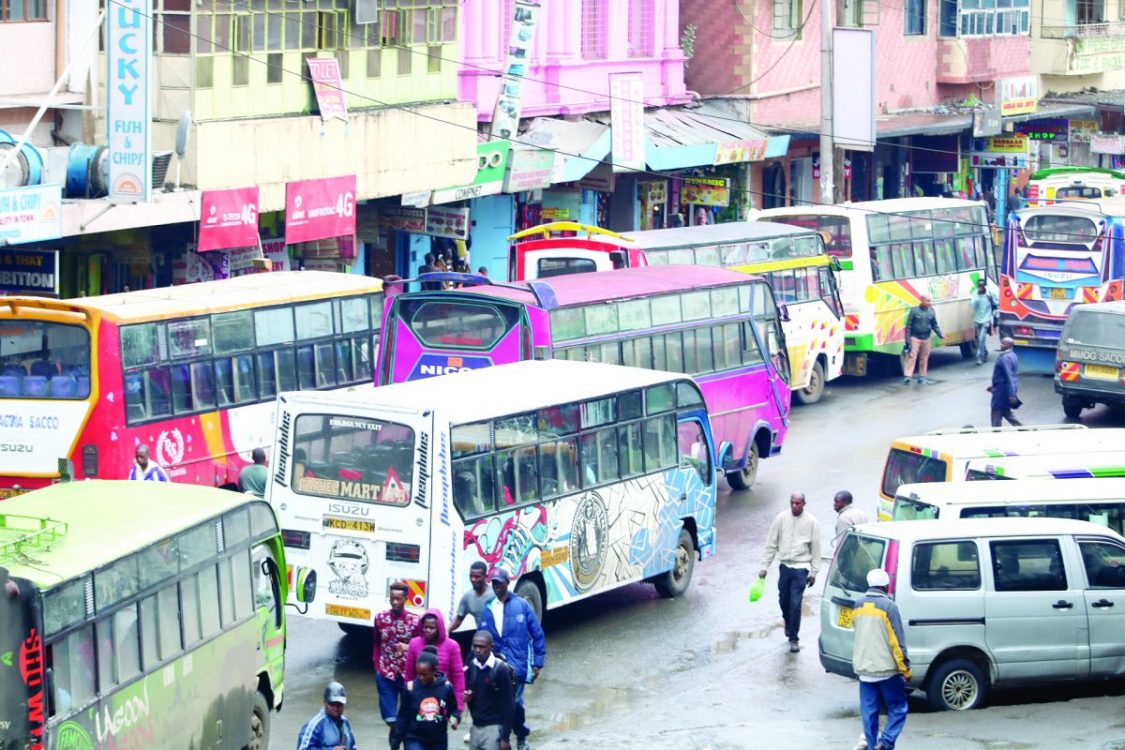Matatu sector chaos blamed on corruption within NTSA

A public transport lobby group is blaming the government for the disorder in the matatu sector, citing systemic failures at the National Transport and Safety Authority (NTSA) as a major impediment to meaningful reform.
Federation of Public Transport Sector chairman Edwin Mukabana alleges that the challenges in the industry persist despite the willingness of operators to comply and invest in improvements, due to bad manners from State officials.
He told the National Assembly Departmental Committee on Transport that NTSA has created inefficiencies by issuing licences without relying on data, leading to the clustering of matatus in areas with low passenger demand and unhealthy competition.
“There is a national travel survey that is supposed to be conducted to help collect data and ensure data is reposited in the correct areas,” he said.
The situation, he argued, increases the risk of road accidents and chaos on Kenyan roads. He noted that the industry, which serves over six million passengers daily and contributes more than Sh300 million per day, has invested over Sh70 billion in Nairobi alone, yet continues to suffer from poor regulation.
Further, Mukabana criticised NTSA officials for rent-seeking during vehicle inspections and license processing, despite the digitisation of many services.
He said this corruption contributes to the irregular operations of some public service vehicles. He lamented that NTSA’s systems frequently malfunction, making it difficult to run the sector effectively.
Automating functions
“Whereas there has been quite a bit of movement towards automating functions at NTSA, this issue of rent-seeking is becoming too much at NTSA, and we’ve got a feeling that it needs to be spoken to. Now, the systems at NTSA are always multi-functioning,” he disclosed.
The continued bribery at these offices, he said, undermines any effort towards efficiency and fairness in the system.
Law enforcement agencies also came under scrutiny, with Mukabana questioning why police officers are inconsistent in enforcing traffic laws.
“We would like to understand why police cannot enforce things the way they are because you find there are a lot of disparities, some people are following the law, some are not following the law, and that creates a problem.”
He also raised concerns about the judicial system’s handling of offenders, saying that many lawbreakers are given light penalties with little investigation into the underlying issues. Mukabana expressed frustration over the poor state of road infrastructure that hampers the operations of the matatu industry.
He questioned why the government has not invested in public transport facilities such as depots, bus stations, dedicated lanes, and terminals, even though operators pay daily fees to county governments.
“How do we expect to operate in this country without depots, without bus stations, without dedicated lanes, without terminals? No investment is being done in that area. Yet every day we are paying money to county governments, and no investment is being done to develop public transport facilities,” he lamented.
He emphasised that this lack of infrastructure severely limits the efficiency of the transport system and undermines efforts to bring order to the sector.
Another key issue raised was the lack of government-sponsored training institutions for road transport, unlike other transport sectors such as rail, aviation, and maritime, which have structured training programmes. Mukabana said training in the road sector should go beyond driving skills to include expertise in traffic control, route design, terminal planning, and vehicle selection based on different operating environments.
Collecting premiums
Insurance Regulatory Authority (IRA) was also criticised for allowing insurance companies to collect premiums from matatu operators even when facing insolvency.
“The Insurance Regulatory Authority allows members of an insurance scheme to make their premiums even when they are about to collapse and the hard money that they have contributed becomes irretrievable,” he revealed. Mukabana pointed out that many operators have lost money after paying premiums to insurers who later collapsed, with no compensation or accountability from the regulator.
He called on IRA to enforce stricter oversight to protect stakeholders in the sector. The parliamentary committee promised to hold a broader consultative forum in June.
The session will bring together all relevant stakeholders, including the Ministry of Transport to address the structural issues affecting the public transport industry as the committee prepares to go on recess.















